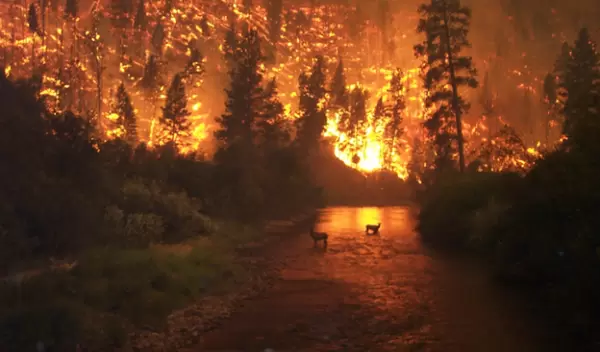
Wildfires transform aquatic ecosystems, with implications for wildlife and water quality
In devasting events dotting the globe, climate warming has led to an increase in the number and severity of destructive wildfires. Climate change projections indicate that environmental and economic damage from wildfires will increase in the years ahead.
While studies have analyzed fires’ impacts on land, research by scientists at the University of California San Diego and other institutions indicates that aquatic ecosystems are also undergoing rapid changes because of wildfires.
Led by UC San Diego scientist Jonathan Shurin, the researchers showed how aquatic systems change with the input of burnt plant matter. The U.S. National Science Foundation-supported results are reported in two papers published in the journal Global Change Biology.
“This work improves our understanding of the connectivity between aquatic and terrestrial systems, and the impact of fire on ecosystem function,” said Andrea Porras-Alfaro, a program director in NSF’s Division of Environmental Biology.
Among the findings, scientists show that fire chemically transforms plant debris and changes the role of aquatic ecosystems as key players in the carbon cycle. The shifts point to a fundamental change in the way these aquatic systems store, process and emit carbon.
The results are important as aquatic ecosystems serve as sinks that capture water flows and store carbon in their sediments.
"The effects of wildfires are not limited to terrestrial systems," said Chris Wall, first author of one of the studies. "When we think about wildfires increasing, especially in the West, burned materials flow into waterways that are vital for people and wildlife. We're now recognizing that wildfires can greatly influence ecosystem health, with implications for water resources like aquifers and recreational fishing."
The results have implications for aquatic ecosystems in areas such as the Sierra Nevada.
"We've seen the impact these huge fires have had on watersheds, so we're working to understand how different components of climate change are altering ecosystems," said Shurin.
